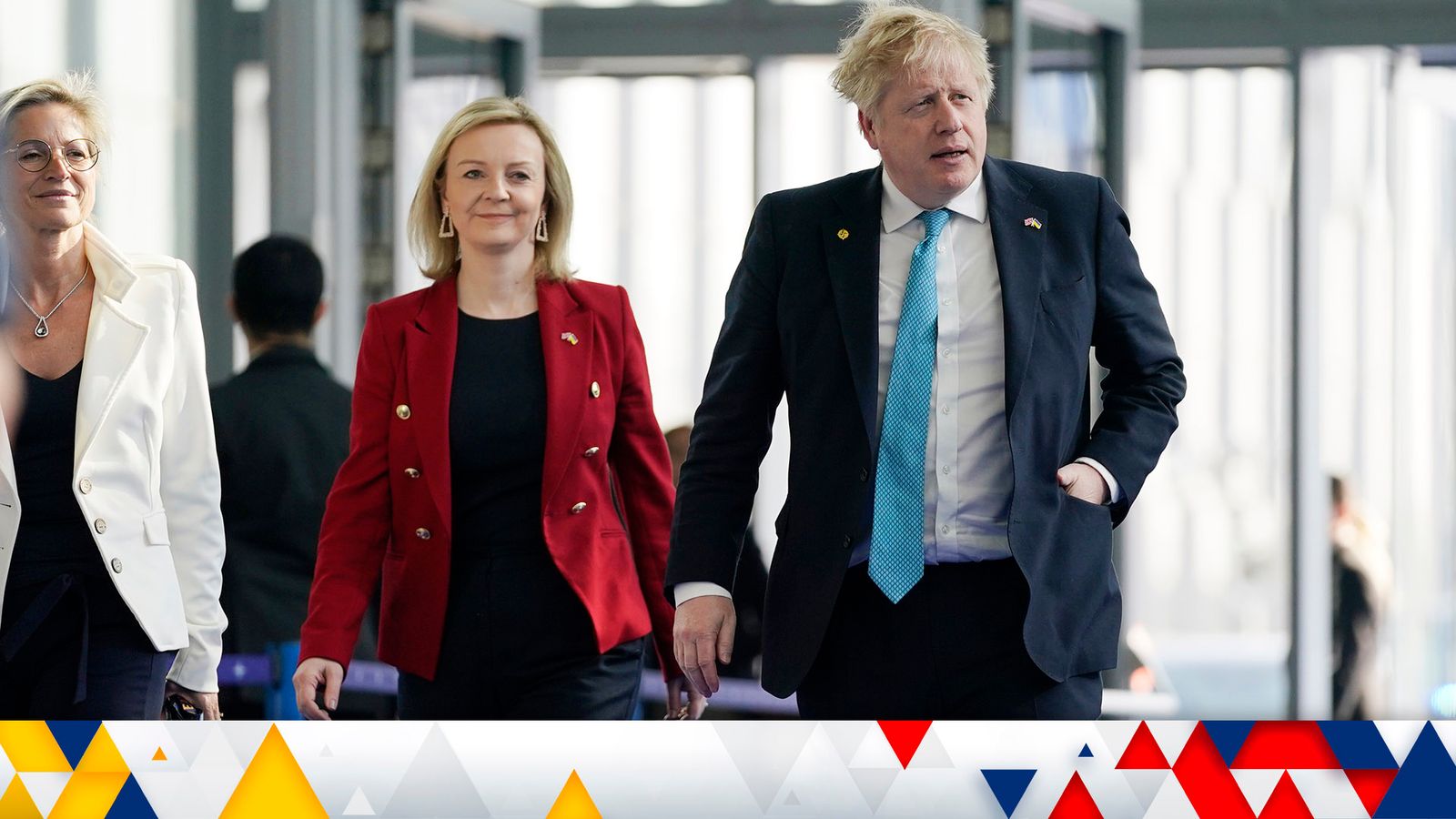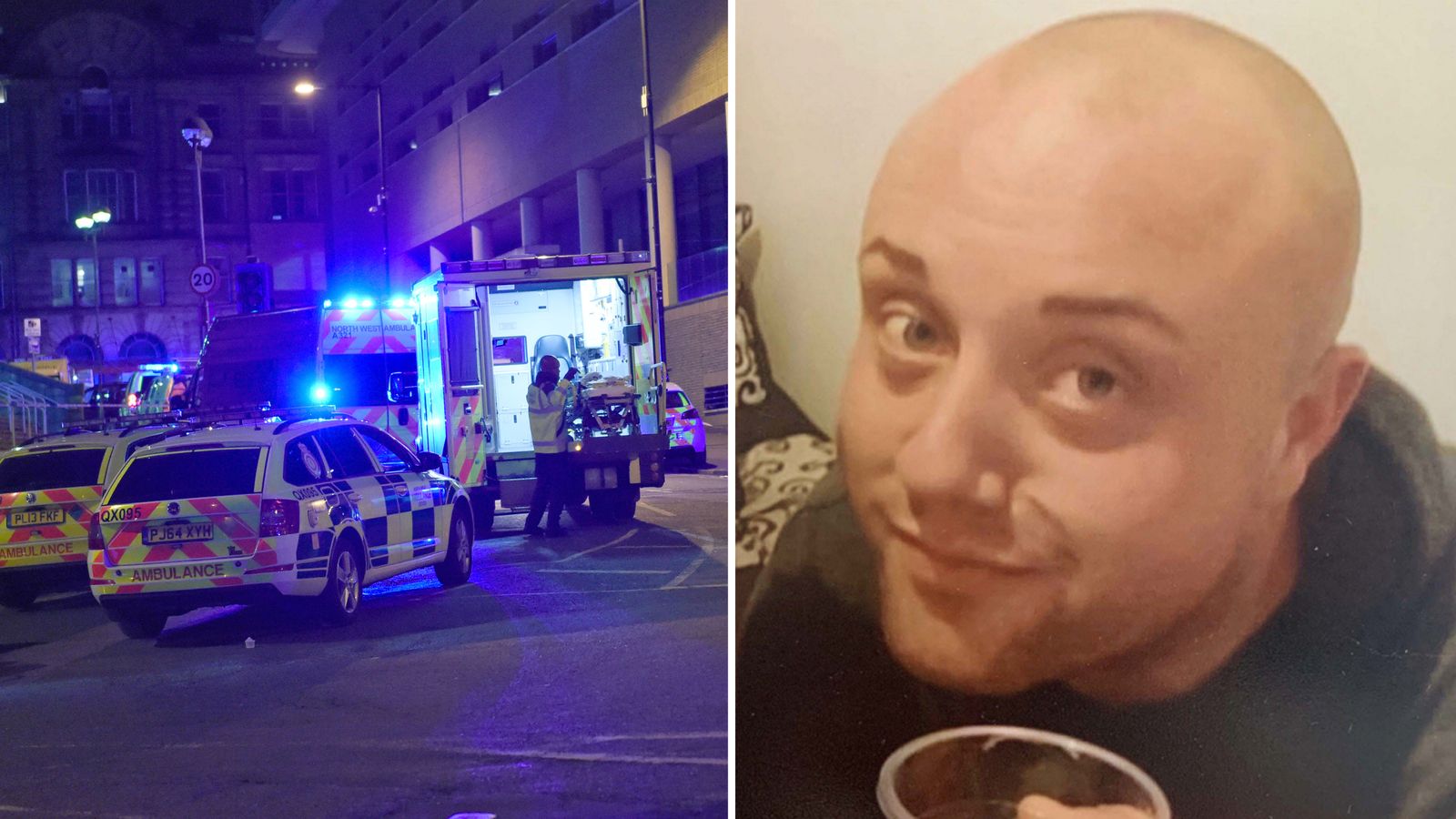Britain and its Western allies will increase the economic pressure on Russia and are looking to see if more can be done to “shorten” the war in Ukraine such as preventing President Vladimir Putin from accessing his gold reserves, Boris Johnson has said.
Speaking ahead of a NATO meeting in Brussels, the prime minister said the Russian leader had already crossed a “red line” with his “barbarism” and indiscriminate tactics against innocent civilians in Ukraine and that he should appear before the International Criminal Court.
“We need to do more,” he told LBC radio. “And so we need to do more economically. Can we do more to stop him using his gold reserves for instance, in addition to his cash reserves?
“The more pressure we apply now, particularly on things like gold, that I believe the more we can shorten the war.”
Ukraine war live updates: 1,000 individuals and businesses now sanctioned
Please use Chrome browser for a more accessible video player
He also compared Ukrainian President Volodymyr Zelenskyy to Winston Churchill – who led Britain to victory during World War Two – for having given the Ukrainian people “their roar”.
Mr Johnson said the leader “has been absolutely brilliant… a remarkable figure” in mobilising global support for Ukraine.
Ukraine war: UK to send 6,000 defensive missiles to Ukraine to ‘step up’ military support
P&O: Ferry company may have ‘broken the law’ in sacking 800 workers, Boris Johnson says
Top Foreign Office civil servant Sir Philip Barton responds to whistleblower’s accusation that he misled MPs over Afghanistan evacuation
“He knows, as Churchill said of himself, he may not have been the lion but he’s been privileged to give the roar. It’s the Ukrainian people who have been the lion, and he’s expressed their will and their sense of defiance.”
The prime minister is joining fellow NATO leaders in Brussels for an emergency summit later to discuss bolstering action against Moscow – exactly a month on from the start of the Russian invasion.
Key developments
• UK Foreign Secretary Liz Truss announces 65 new Russian sanctions to cut off vital industries fuelling Vladimir Putin’s war machine
• Russian troops are still trying to resume offensive operations to capture the cities of Kyiv, Chernihiv, Sumy, Kharkiv, and Mariupol, according to Ukraine’s armed forces chief of staff
• An estimated 100,000 people remain trapped in the Ukrainian city of Mariupol with no access to food, water, or heating
• Russia is moving fresh units close to the Ukrainian border, also calling up soldiers who have recently served in Syria
• A Russian regulator blocked Google News in the country, saying it allows access to fake material about what President Putin has described as a “military operation” in Ukraine
Please use Chrome browser for a more accessible video player
US President Biden to meet NATO, G7, and EU allies to discuss the war in Ukraine
US President Joe Biden is also be there for the NATO summit – to discuss bolstering action against Moscow.
This will be followed by a meeting of the G7 group of nations, and then the European Council – the heads of state or government of the 27 EU member countries – during which talks are likely to focus on further sanctions against Moscow and ways of cutting reliance on Russian gas.
Mr Biden, who has pledged to avoid provoking “World War Three”, will attend all three summits for discussions with allies about the next step in responding to President Putin and his invasion of Ukraine.
Mr Zelenskyy, who is expected to address both NATO and EU summits via video-link, has failed to get NATO to create a no-fly zone over his country, but many countries have shown their support by imposing sanctions on Russia and donating weapons and aid to Ukraine.
Please use Chrome browser for a more accessible video player
‘New sense of urgency,’ says NATO chief
As he arrived for talks, NATO’s secretary general said President Putin had made a “big mistake” and underestimated the “strength and bravery” of the Ukrainian people who with the significant support of its allies are “fighting back the invading Russian army”.
Jens Stoltenberg said there is a “new sense of urgency” about Europe’s defence which is why the presence of NATO troops has been increased on the eastern flank and the deployment of “four new battle groups” in Bulgaria, Romania, Hungary and Slovakia is on the agenda. There are already around 40,000 troops spread from the Baltic to the Black Sea.
But he reiterated there would be no NATO troops on the ground in Ukraine or planes in the air which would heighten the risk of a “fully fledged war between NATO and Russia”.
The 30-nation military alliance will also agree to send equipment to Ukrainians that could help them defend themselves against Russian biological, chemical and nuclear attacks.
World leaders are becoming increasingly alarmed by the prospect that Russia may resort to more desperate measures and use outlawed weapons such as chemical agents which could spread across the border into a NATO member state – bringing the war to the alliance.
Please use Chrome browser for a more accessible video player
Is the tide turning for Ukraine?
There are signs Ukraine might be starting to turn the tide against the Russian troops, according to British military intelligence, with the UK’s Ministry of Defence suggesting Russian forces are depleted and “have almost certainly suffered thousands of casualties during their invasion of Ukraine”.
“Russia is likely now looking to mobilise its reservist and conscript manpower, as well as private military companies and foreign mercenaries, to replace these considerable losses,” the MoD said in its latest update.
“It is unclear how these groups will integrate into the Russian ground forces in Ukraine and the impact this will have on combat effectiveness.”
Please use Chrome browser for a more accessible video player
‘Ukraine matters’: Make yourselves visible and heard, says Zelenskyy
Russian forces – bogged down by supply problems and low morale among troops – have met an outgunned but determined resistance in the capital Kyiv and other cities.
Moscow – increasingly isolated from the rest of the world through financial sanctions – has accused Kyiv of stalling peace talks by making proposals unacceptable for Russia. Ukraine has said it is willing to negotiate but will not surrender or accept Russian ultimatums.
On Wednesday night, Mr Zelenskyy called on people around the world to stand with Ukraine and against the war on Thursday, a month after the invasion began.
He said: “Say that people matter. Freedom matters. Peace matters. Ukraine matters.”
Follow the Daily podcast on Apple Podcasts, Google Podcasts, Spotify, Spreaker








